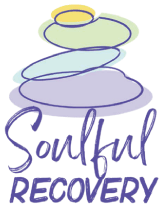Marijuana Addiction
Marijuana Addiction Treatment
Contrary to some people’s beliefs, marijuana can be abused and become addictive. As marijuana continues to be legalized throughout the country and THC potency increases, it stands that Marijuana Use Disorder will be on the rise. Research suggests that most people use marijuana as a coping mechanism for psychological distress. Some of this distress includes social situations, trauma, panic or anxiety disorders, depression, and stress. According to SAMHSA, roughly 1 out of 10 adults who use marijuana will become addicted. For people who are under the age of 18, 1 out of 6 individuals may become addicted to marijuana. Furthermore, approximately 3.3% of Coloradans ages 12 and older have Marijuana Use Disorder, roughly 2x more than the national average. Now more than ever, marijuana addiction treatment is needed in Colorado.
How Does Marijuana Affect The Brain?
Statistics aside, marijuana has tangible and measurable effects on both adolescent and adult brains. Marijuana, commonly referred to as Weed, introduces the chemical THC (Tetrahydrocannabinol) into the brain. THC binds to the cannabinoid neural receptors, which are located throughout the brain and differ from person to person. Some of the most commonly reported effects are visual distortions, feelings of euphoria, and muscle relaxation. When used infrequently or in small doses, the effects can be relatively harmless. However, in high doses and frequent use, marijuana can have noticeable impacts on some of the most important neural regions.
First, cannabinoid receptors typically lie in the prefrontal cortex, hippocampus and occipital lobes. These regions are responsible for controlling personality, memory and visual stimuli. Although the amount of cannabinoid receptors in each region differ by person, most people with marijuana use disorder report memory impairment, changes to personality and feeling less happy when they’re not high. Secondly, marijuana will impact the dopamine system also known as the pleasure and reward center of the brain. With persistent use, your brain will begin to produce less and less natural dopamine. To achieve the desired effects that come from using weed, one will have to continue to use the substance more and more frequently and in higher doses. This leads to a cycle of increased tolerance and withdrawal symptoms.
Symptoms of Marijuana Use Disorder
People with marijuana use disorder report a wide range of symptoms. If you are struggling to decide whether or not you or your loved one is experiencing this disorder, we have included a list of the most common signs and symptoms below.
- Unexplained alterations to mood and personality
- Impaired memory
- Increased social isolation
- Decreased motivation
- Decline in decision making abilities and concentration
- Decreased ability to organize information
- Psychosis (delusions of grandeur)
- Inability to stop using despite attempts
- Deception about one’s use


If you or someone you know is experiencing these symptoms, it’s not too late to get help. Thanks to neural plasticity, it is possible to regain a semblance of normal cognitive function after stopping marijuana use. We will walk you through our approach and help you find the support you need today. To learn more about our program and receive the best possible treatment for marijuana use disorder, contact our team today.
Find Your Way Today...
Learn More About What We Treat:



